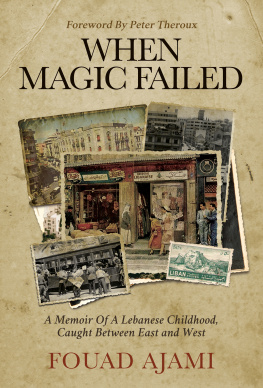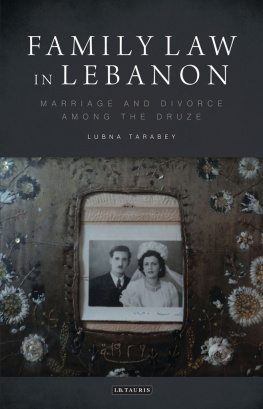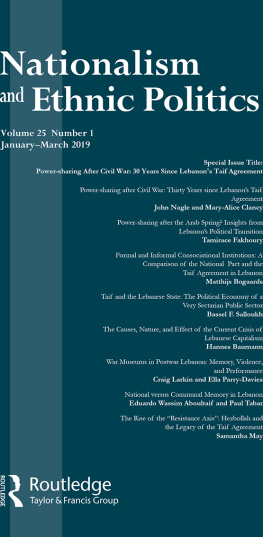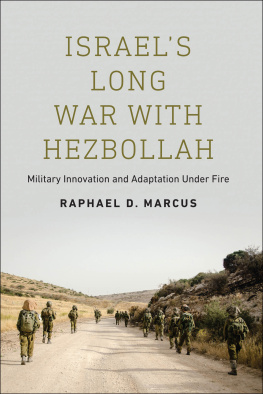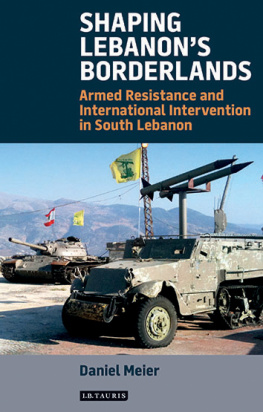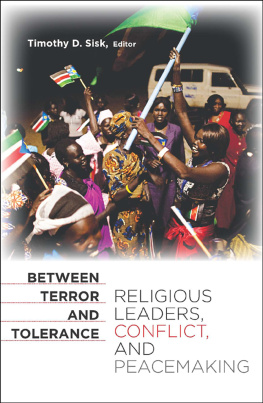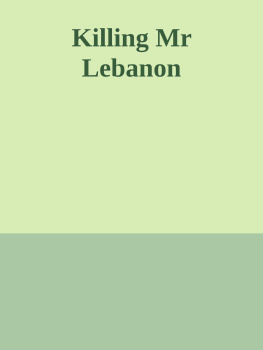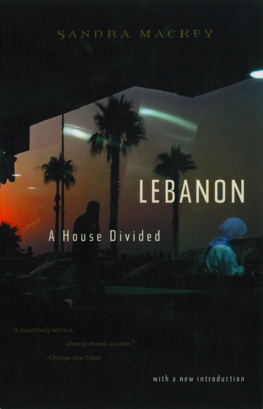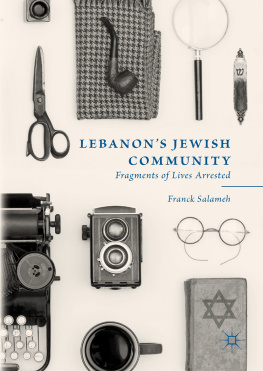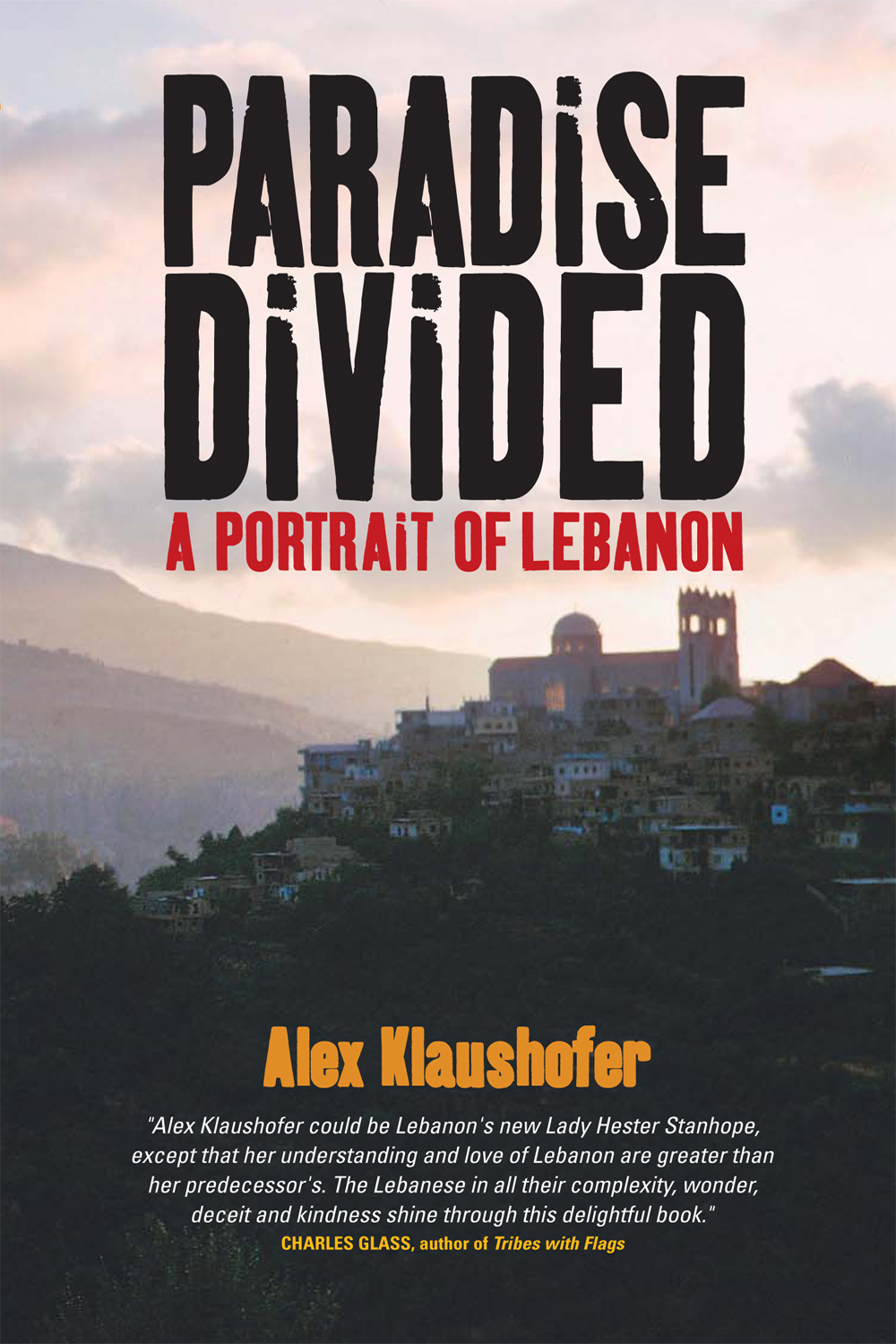Title Page
Paradise Divided
A Portrait of Lebanon
By
Alex Klaushofer
Publisher Information
First published in 2007 by
Signal Books Limited
36 Minster Road
Oxford
OX4 1LY
www.signalbooks.co.uk
Digital Edition converted and published by
Andrews UK Limited
www.andrewsuk.com
Alex Klaushofer, 2007
The right of Alex Klaushofer to be identified as the author of this work has been asserted by her in accordance with the Copyright, Design and Patents Act, 1988.
All rights reserved. The whole of this work, including all text and illustrations, is protected by copyright. No parts of this work may be loaded, stored, manipulated, reproduced or transmitted in any form or by any means, electronic or mechanical, including photocopying and recording, or by any information, storage and retrieval system without prior written permission from the publisher, on behalf of the copyright owner.
Cover Design: Baseline Arts
Cover Image: TNT Magazine/Alamy
Acknowledgements
Many people in both Lebanon and Britain helped with the writing of this book, offering counsel, contacts, education, and practical and emotional support. Off the page, my thanks go to the many people who cannot be named, but here I would like to mention in particular:
Helen Bailey, Donna Baillie, Nicholas Blanford, eyad Abu Chakra, Colin Chapman, James Ferguson at Signal Books, giuseppina DOro, Diana Bou ghanem, Sylvia Haddad and the Joint Christian Committee for Social Service, Sister Clemence Helou and Sister Mona at Qannoubin monastery, Alison Hird, David Hirst, Ali Hweidi and the Palestinian Return Centre, Mona Khauli and staff at the Young womens Christian Association, Otto and Rosemary Klaushofer, Christian Henderson, Tim Llewellyn, Ramse Mahmoud and family, David McDowall, Najwa Nasr, elfi Pallis, Richard Phillips, will Phillips, Liz Porter, everyone at the Regis Hotel, Ali Saad and the Lebanese Red Cross, Hadia Saad, Assem Salam, Rana Salam, the Reverend Zaid Abu Shafik, Nadim Shehadi, Maddalena Taras, Rosemary Thomas, Nuhad Tomeh and the Middle east Council of Churches, Barnaby Rogerson, Brian whitaker and Mona Ziade.
Chronology
From 1516 until the end of the First world war Lebanon was part of the Ottoman empire. Nonetheless, the Ottoman rulers allowed the leaders of the Maronite Christian, Muslim and Druze communities to rule their fiefdoms without much interference.
1860 - Mounting tensions between the Druze and the Maronites in the Chouf mountains lead to the death of over 10,000 Christians. French troops arrive to protect the Maronite community.
1861 - Although still part of the Ottoman empire, Mount Lebanon is declared an autonomous province.
1920 - The State of greater Lebanon is formed, taking in Mount Lebanon, the provinces of north Lebanon, south Lebanon and the Bekka Valley. France is given the mandate for both Lebanon and Syria.
1926 - Lebanon is declared a republic with a constitution enshrining the principles of democracy and human rights.
1943 - The foundations of Lebanons status as an independent republic are set out in an unwritten National Pact. The Christians are expected to recognize Lebanons Arab face and not look to the French for protection, while the Muslims are to seek independence from Syria. The agreement formalizes a power-sharing arrangement between the countrys Christians and Muslims: the president is to be a Maronite Christian, the prime minister a Sunni Muslim and the Speaker of the Chamber of Deputies a Shia Muslim.
1948 - The state of Israel is created and around 100 000 Palestinian refugees flee north into Lebanon.
1964 - The Palestine Liberation Organization is formed and, in the years that follow, its guerrillas use south Lebanon as a base for raids into Israel.
1975 - Following clashes between Phalangist and Palestinian militia, the civil war begins. For the next fifteen years, Christians (based in Beirut and parts of Mount Lebanon) fight Muslim and PLO militia across the green Line (west Beirut and south Lebanon). The conflict is characterized by shifting alliances between the countrys different sects and factions and brings both Israeli and Syrian troops onto Lebanese soil.
1976 - In response to a request from the Lebanese president to the Arab League for a peacekeeping force, Syrian troops enter Lebanon to protect the Christians.
1978 - Israel launches a major invasion of Lebanon and succeeds in pushing the PLO guerrillas north of the Litani river. It forms a proxy Lebanese militia, the South Lebanese Army (SLA), to protect the security zone it has carved out on Lebanese territory along the border and, following UN resolution 425, withdraws from Lebanon. The United Nations Interim Force in Lebanon (UNIFIL) is created to keep the peace.
1982 - Israel launches a full-scale invasion of Lebanon, Operation Peace for galilee, with the aim of curbing PLO activities. Israeli forces invade west Beirut and, in revenge for the assassination of their leader, the president-elect Bashir gemayel, the Phalangist Maronite militia enter the Sabra and Shatila refugee camps. with the co-operation of the Israeli forces guarding the camps, they kill hundreds of Palestinian civilians.
1982 - Shia militants begin to form Hezbollah, the Party of god, with Iranian backing, as a political and military organization whose goal is the destruction of Israel.
1986 - western hostages, including John McCarthy and Brian Keen-an, are kidnapped by Islamic militants in Beirut, remaining in captivity for up to five years. The following year, the Archbishop of Canterburys envoy Terry waite is also kidnapped while attempting to negotiate their release.
1989 - The National Assembly, meeting in Taif, Saudi Arabia, endorses a National Reconciliation Charter which marks the beginning of the end of the fighting. The Taif Accord transfers some power away from the Maronites to the Sunnis, reflecting Lebanons changing demographics and assuaging Muslim resentment.
1991 - All the militias taking part in the fighting except Hezbollah are dissolved, bringing the civil war to an end. It has claimed the lives of more than 100,000 civilians, injured another 100,000 and left much of Beirut in ruins.
1996 - Israeli forces launch Operation grapes of wrath, bombing Hezbollah bases in south Beirut, southern Lebanon and the Bekka. An Israeli attack on a UN base at Qana results in the death of over a hundred Lebanese civilians sheltering there.
2000 - After the collapse of the SLA and the rapid advance of Hezbollah forces, Israel withdraws its troops from southern Lebanon. The end of the Israeli occupation is widely seen as a victory for Hezbollah.
2005 - On 14 February, former prime minister Rafik Hariri is killed by a car bomb in Beirut, along with twenty-two other people. The culprits are widely believed to be the Syrians, and the following month the UN sets up a special inquiry to investigate the killing. Following the assassination, calls for Syria to withdraw from Lebanon intensify. Hezbollah organizes a pro-Syria demonstration in Beirut on 8 March and, on 14 March, a million people gather in Martyrs Square calling for an independent, democratic Lebanon free from Syrian control.
2005 - In April, following increasing pressure from the UN and the west, Syrian forces leave Lebanon.
2005 - June sees the killing of two prominent anti-Syrians in car bombs: the journalist Samir Qasir and george Hawi, former leader of the Lebanese Communist Party. The next month Deputy Prime Minister elias Murr survives a car bomb. In an explosion in September, the well-known Lebanese journalist May Chidiac loses her left arm and leg; in December, anti-Syrian MP and journalist gibran Tueni loses his life in a car bomb.


